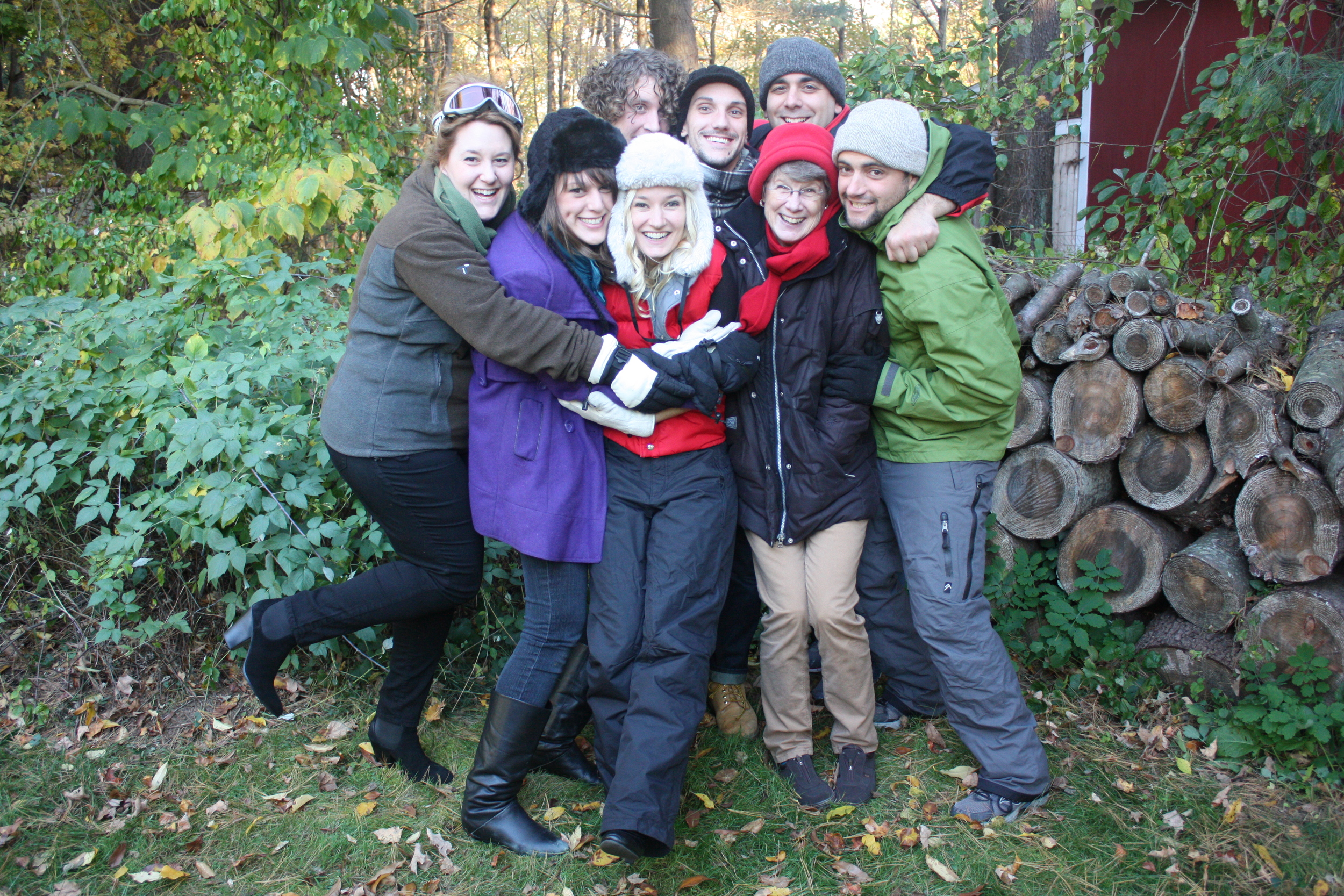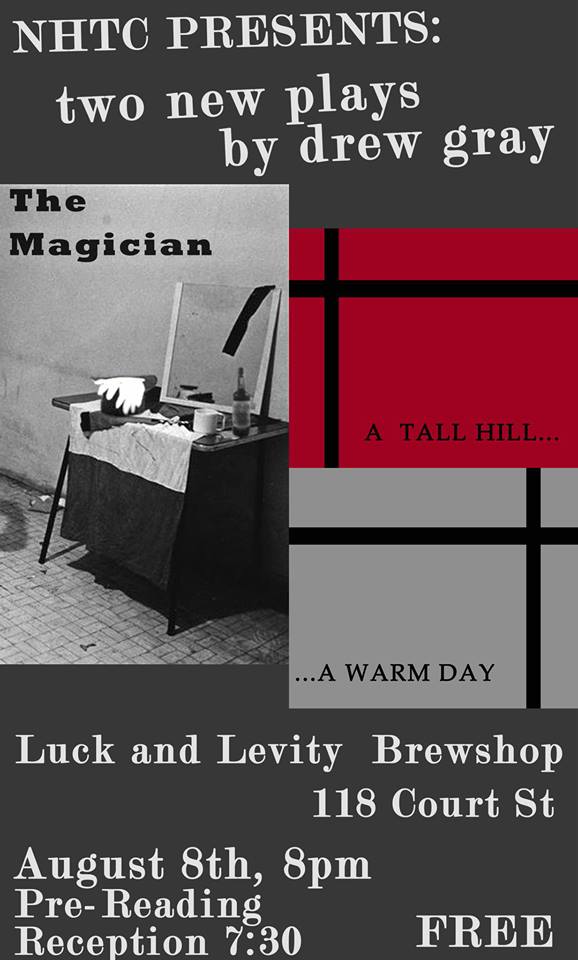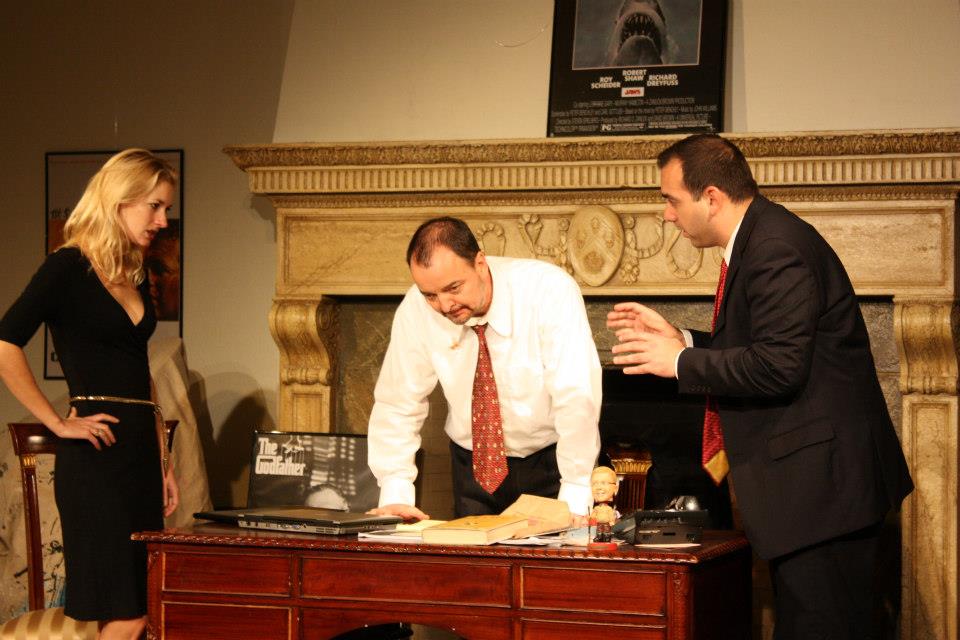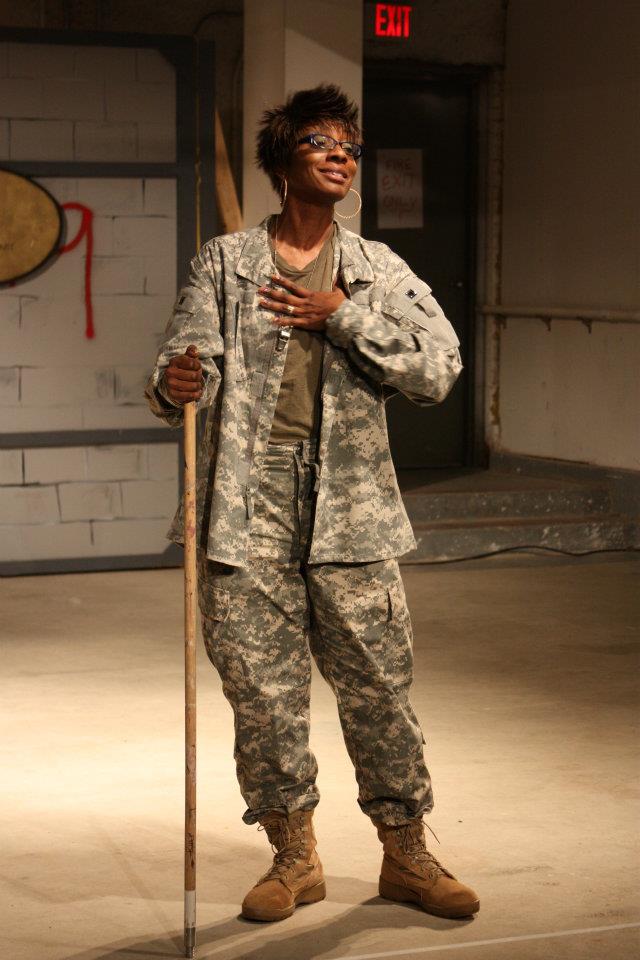Review of Proof, New Haven Theater Company
With David Auburn’s four character play, Proof, New Haven Theater Company once again proves that what they do best are plays driven by natural dialogue in a static location. In focusing on Cathy (Megan Keith Chenot), the daughter of Robert (George Kulp), a ground-breaking mathematician, who is trying to cope with her father’s loss, while fielding intrusions from her dad’s one-time grad student, Hal (Christian Shaboo), and her take-charge sister, Claire (Deena Nicol-Blifford), Proof departs from most NHTC offerings by presenting a female main character. And that’s to the good as Chenot is one of the troupe’s most versatile actors. Here, she gets to be prickly and melancholic, romantic and distracted, all while keeping us in tune with what’s going on in Cathy’s interesting head.
Turning 25 as the play opens, Cathy is a young woman who has inherited some of her dad’s math genius, but hasn’t really applied herself, it seems. Worried that mathematical minds tend to peak around 28, she opens the play in a funk, chatting with her already deceased father. It’s a nifty opening because it gets the relationship between Robert and Cathy on the table fast: he doted on her, but, in his last decade or so, he needed her as his companion and attendant because he was, as he puts it, “in the bug house.” From beyond the grave, as it were, Robert’s voice can be encouraging and consoling, but his very presence may suggest perhaps that Cathy might share both the capacity for mental breakthrough and breakdown.
Hal (Christian Shaboo), Cathy (Megan Keith Chenot)
Into the situation comes a possible love interest, Hal, who is dedicated to his mentor’s past greatness and hopes against hope that something worth publishing can be found in the reams and reams of notebooks Robert left behind. Robert, suffering from hypergraphia, tended to write gibberish as though straight from the Burning Bush, and so there’s a lot to slog through. Cathy is both dismissive of Hal’s efforts and a little bit conciliatory, though he may be trying too hard to draw her out. Shaboo seems always to play sympathetic guys, so we probably aren’t as distrustful of Hal’s intentions as Cathy is.
The one to be distrustful about is Claire who is not nearly so star-struck about the old man as Cathy is, and who believes the sisters erred in not turning him over to professional help. Claire has a much more practical mind than either her sister or father so tends to be the wet-blanket to their enthusiasms. It’s important that she be a not-so-sympathetic voice of reason and Nicol-Blifford gets her across as likable and even-tempered, if pushy.
Directed by Steven Scarpa with a good sense of pacing, the NHTC production is strengthened by its ability to make somewhat prosaic situations—bickering well-intentioned sisters, ingratiating but nerdy guy, overbearing has-been paterfamilias—come alive with forthright charm. The flashbacks to Robert while alive let us see both the manic side of his condition and his mellow months of remission. Kulp handles both with a sincerity that shows us Robert from Cathy’s point of view, as someone who was once something extraordinary and then, sadly, could only hope for being normal.
Cathy (Megan Keith Chenot), Robert (George Kulp)
As a play, Proof works by short scenes of two or three characters and keeps its dialogue focused on the back and forth of exchange. Some of the best moments are in the timing between Chenot and Nicol-Blifford as Cathy is apt to verbally undercut her sister’s views, and vice versa. The hot and cold approach to romance between Cathy and Hal feels contemporary enough, though tinged with a romantic comedy tone.
The play’s main issue is whether or not a woman can be a math genius—a plot point that works both for the theme of what we inherit from our forebears and for the theme of the incalculable equation of love. There's also a neat play on proof, as mathematical solution and evidence. In the end, we see that the burden of proof can be too easily assumed by those who don’t know as much as they think they do, and that love is something that has to be proven again and again.
Hal (Christian Shaboo), Cathy (Megan Keith Chenot)
Proof
By David Auburn
Directed by Steven Scarpa
Stage Manager: Margaret Mann; Set: George Kulp; Lighting: Peter Chenot; Board Ops: Margaret Mann and Erich Greene
Cast: Megan Keith Chenot; George Kulp; Deena Nicol-Blifford; Christian Shaboo;
New Haven Theater Company Stage
at English Markets Building
839 Chapel Street
May 5, 6, 7 & 12, 13, 14




















